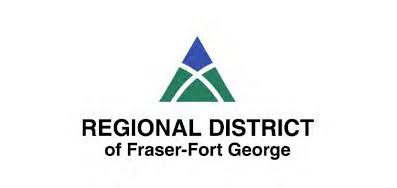On Thursday, a divided Regional District of Fraser-Fort George board of directors approved a change in procedures that could result in fewer public hearings being held regarding rezonings in the rural areas of the district.
The new Development Applications Procedures Bylaw reinstated the practice of holding public consultation meetings regarding temporary use permits, cannabis retail licence referral and liquor licence referral applications – meetings that had been temporarily suspended during the COVID-19 pandemic.
However, the new bylaw also made changes that mean three kinds of rezonings will no longer trigger a public hearing. District general manger of development services Kenna Jonkman said the change was proposed to bring the district in line with the provincial Local Government Act.
“This is a new piece of legislation for all local governments,” Jonkman said. “This was administration’s attempt to see what type of applications fit well, and what don’t.”
Under the new bylaw, rezonings for a second home 90 sq. metres (968.75 sq. feet) or smaller on a single parcel of land, a recreation cabin 90 sq. metres or smaller on a single parcel of land or subdivisions of parcels that create no more than one additional parcel of land won’t trigger a public hearing if they are consistent with the official community plan for the area and the land is not within a Development Permit area.
However, the board retains the power to order a public hearing be held for any given rezoning application, Jonkman said. Authorizing a public hearing would require a vote of the board.
The 90 sq. metre size was chosen to align with polices set out by the Agricultural Land Commission, she added, because the district has a significant portion of agricultural land.
The changes only apply to the rural areas governed by the regional district board, not the areas inside incorporated cities and towns like Prince George, Mackenzie, McBride and Valemount.
‘IT WILL CAUSE CONFLICT’
Director Dannielle Alan said she’s concerned the change is a recipe for causing bad blood between neighbours in rural communities of the district.
“Not allowing people to weigh in on these things is challenging and is going to cause problems,” Alan said. “The more we try to engage and involve our people in our decision making, the stronger our decision making is. It will cause conflict in our small and… tight-knit communities.”
Because of the size of the district, it is impossible for the district staff, who are primarily based in Prince George, to be aware of all the issues in each area, she added. In addition, she said, many of the official community plans in the rural areas are decades old and no longer reflect the realities of those communities.
‘I don’t think the default should be that we don’t hold (a public hearing)… until the community comes and screams at us, and we decide we need one because there is significant public input,” Alan said.
Board vice-chairperson Lara Beckett also opposed the change, because of the possibility to create confusion.
Under the bylaw, residents in the area of the proposed rezoning would receive notification about the proposed change, and whether or not it is going to a public hearing. But if the board decides to order a public hearing, residents could get notice that no public hearing is being held, and then later get a notice saying a public hearing is now being held.
While the bylaw might be clear to district staff and the directors, Beckett said, the average person doesn’t know the district’s procedures and may find it confusing which rezonings do and do not trigger a public hearing.
“It fills people with anxiety,” she said.
Prince George Mayor Lyn Hall, who sits on the board as a director, said the change to the Local Government Act was first introduced as a way to streamline local government processes during the COVID-19 pandemic.
“I’m going to support this,” Hall said. “(The bylaw) gives us that safety net to hold a public hearing.”
Alan, Beckett and Valemount mayor and regional district director Owen Torgensen opposed the new bylaw.



.png;w=120;h=80;mode=crop)